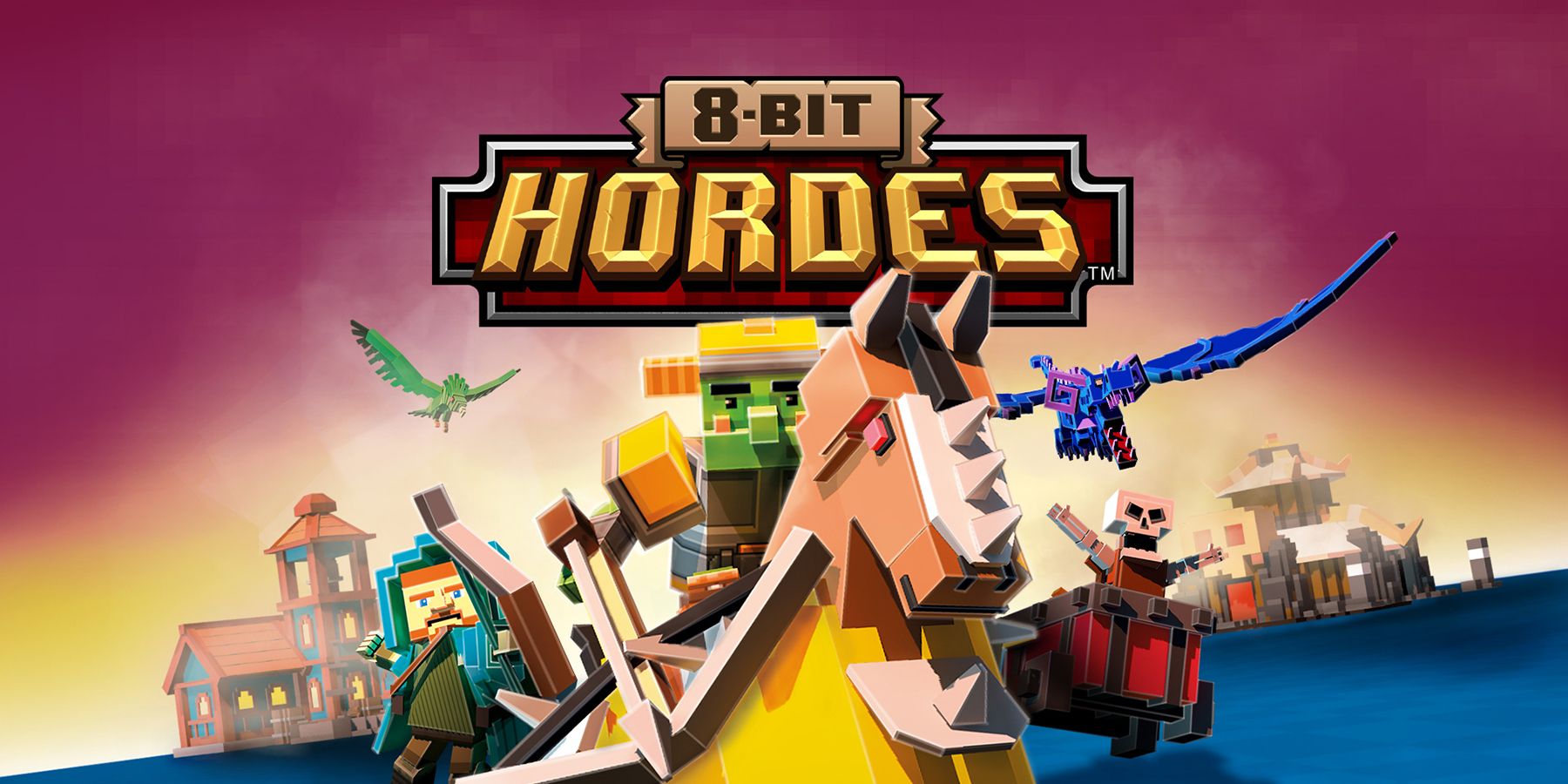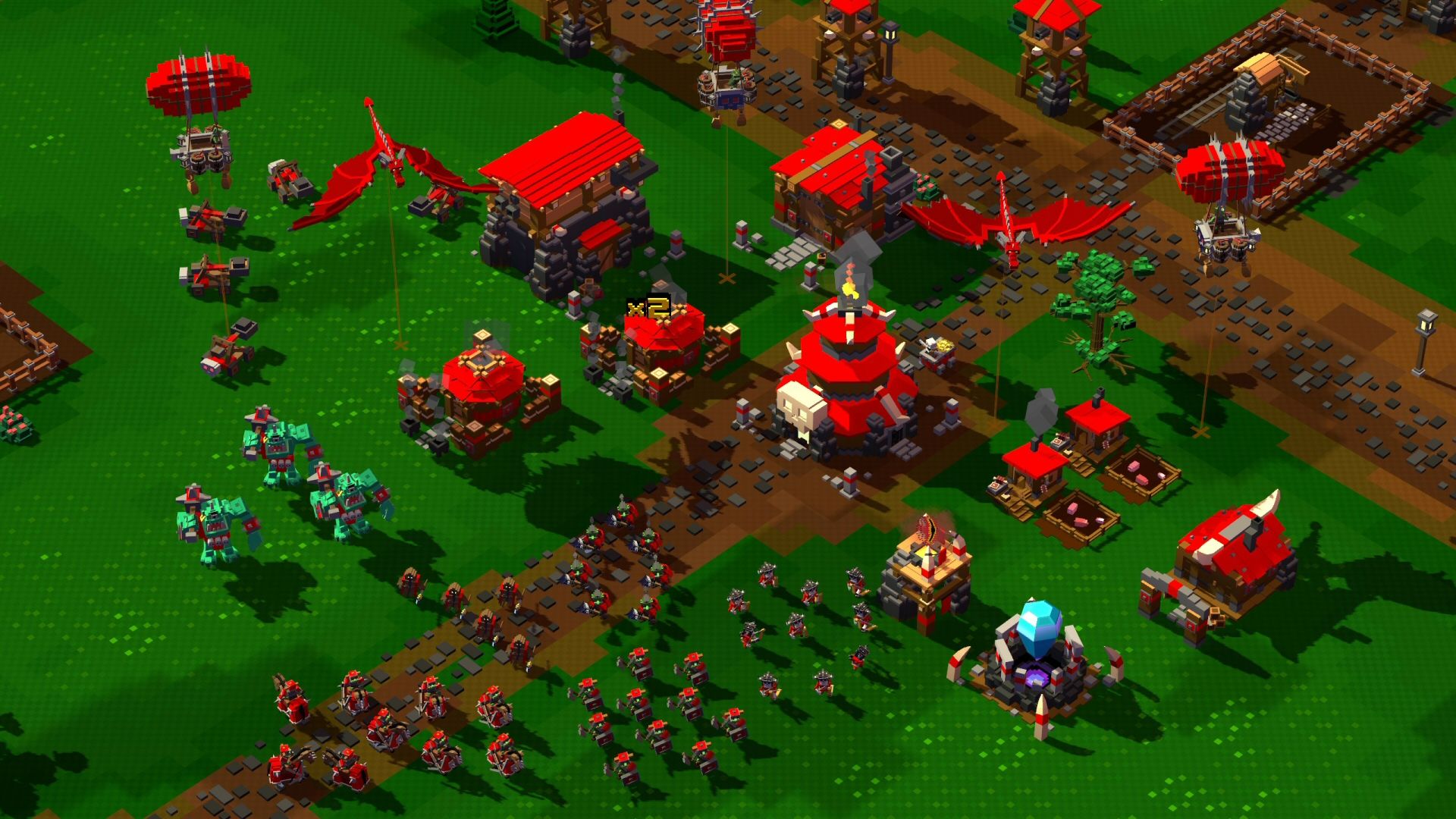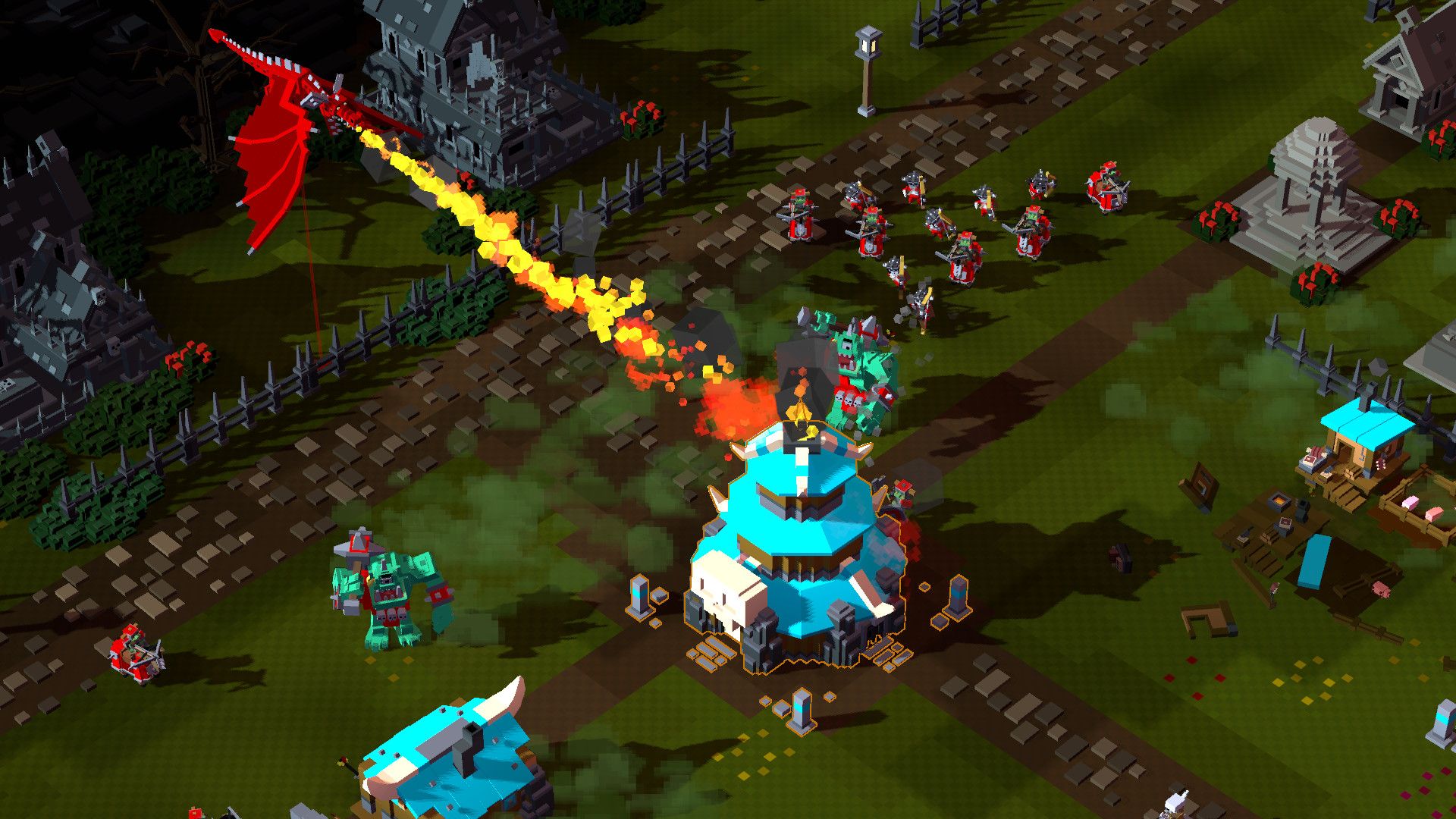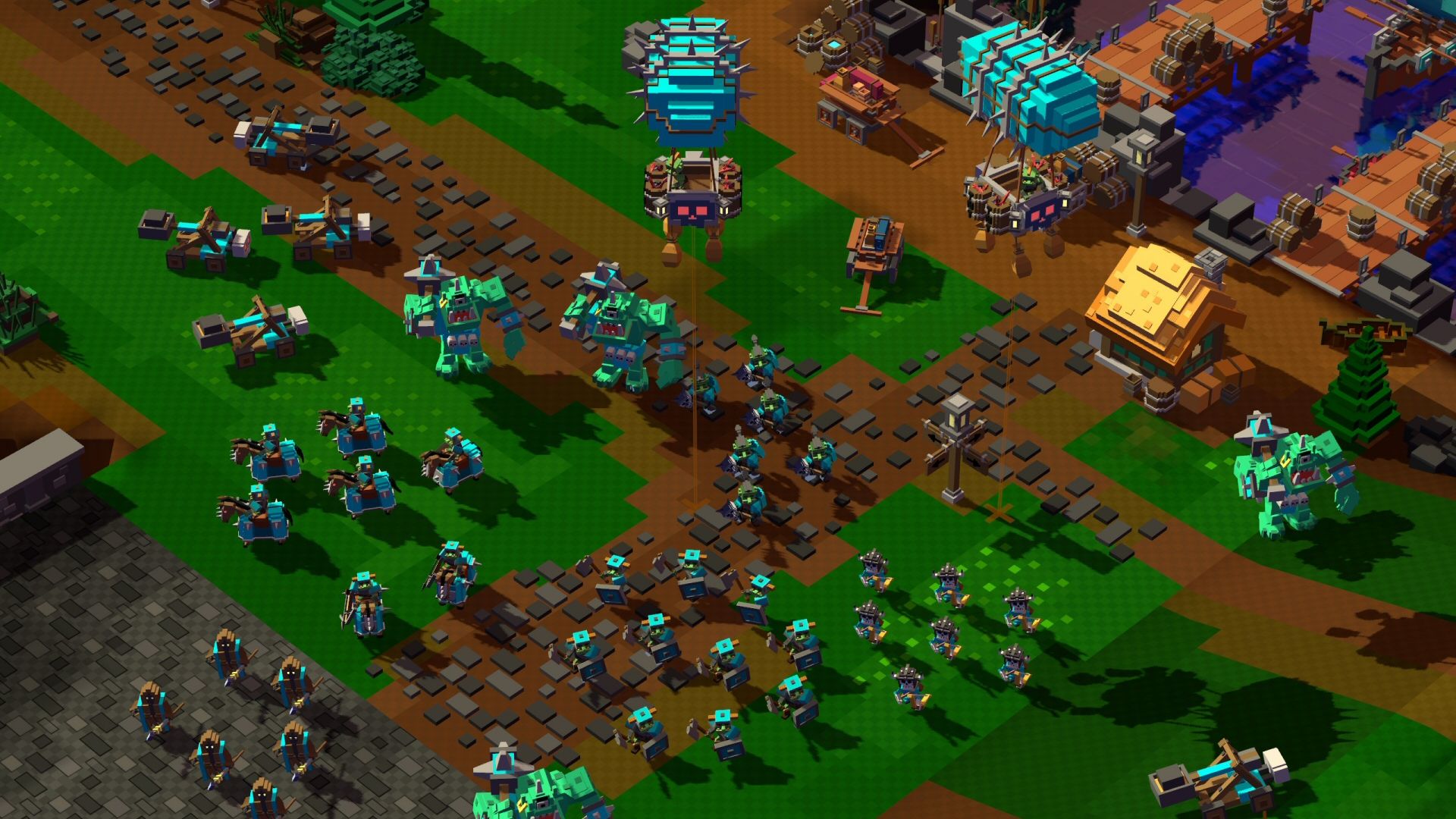http://bit.ly/2UyU5Cy 
8-Bit Hordes is pretty transparent when it comes to its inspirations. The title has its roots in the real-time strategy titles of the 1990s, back when the genre was one of the most powerful forces in PC gaming. However, as with many games that try to emulate the past a little too closely, it has issues with being able to offer up a truly fulfilling strategy experience.
At the very least, developer Petroglyph brings the right experience. Formed by former Westwood Studios veterans who worked on such acclaimed RTS titles as Dune 2 and Command & Conquer, the studio has a long history within the genre. Petroglyph kicked off this more laid-back form of strategy title with the launch of 8-Bit Armies back in 2016, with the initial launch of 8-Bit Hordes for PC coming the same year. Now, it's come to home consoles as well.
Related: 8-Bit Armies Review - A Charming Throwback
At face value, 8-Bit Hordes is the Warcraft to 8-Bit Armies' take on Command & Conquer. That said, it's a pastiche of many games of the time, with the company's history in the genre coming through via a familiar voiceover and the deja vu of brief quips from units when selected. There's a definite Command & Conquer vibe here, and 8-Bit Hordes does a much better job of bringing that kind of gameplay to life than mobile miss-step Command & Conquer: Rivals.

It's a cozy game, and its best features are wrapped up in its neat graphics. This pixelated design is similar to PS3 title 3D Dot Game Heroes or cult classic strategy title Darwinia, and does a decent job of portraying the overall light-heartedness of the game's tone. Meanwhile, there are fun little moments of detail, such as the way in which trees fall down when building begins on the same grid.
The surface layer of 8-Bit Hordes is a success. From the outside it looks like a cutesy retelling of the RTS games of the past, with plenty of charm to win over players. However, after spending some time with the game users will come to realize that this surface layer doesn't make up for some of the game's shortcomings.
The most obvious of these is that 8-Bit Hordes is simplistic to a fault. It's clear that the title was designed with this framework in mind, but rather than allowing players to stretch their legs after the initial mechanics are mastered, there's never a level of complexity that could keep even the most relaxed of players truly entertained.

Across the board, 8-Bit Hordes is a little bit on the shallow side. Resource gathering is so simple that it barely makes a difference to the overall game, while the combat itself doesn't really have much by way of nuance. For big portions of the game, rush mechanics can be king although players may need to think a little more strategically if they want to go after the optional extra objectives per map.
There are a variety of character models that perform different tasks, and the various offensive units have specialties such as destroying infantry or buildings. However, there's still not really much by way of using this to built a strategic front against the enemy, although at the very least the different armies have different unit types. All in all, though, there's nothing here that gets the inner general flowing.
Part of the issue is the fact that 8-Bit Hordes has something of a problem with its AI. Enemy AI never really poses much of a challenge rather than through the odd irritating attack that just force the player to hold back their plans to partake in skirmishes. Meanwhile, players will want to micromanage their own armies in combat, as forces have a habit of drifting off to follow their own (perhaps not entirely useful) agenda.

One of the major successes of 8-Bit Hordes is its control scheme for consoles, though. Building units is incredibly easy, while mapping different units to different groupings is done at the creation level, which is an extremely useful way to put together different batches of units for attacks. It's definitely one of the areas where the simplicity of 8-Bit Hordes works to its advantage.
That said, it doesn't really offset the overall problems with the game, and there's an argument to be made that this control scheme would work equally well in a game that puts more emphasis on the strategy aspect of the RTS. A bit of a tweak to the overall mechanics, and Petroglyph could have been on to a real winner.
8-Bit Hordes is by no means a bad game, but perhaps an example of a missed opportunity. It doesn't reach a place as either a nostalgic throwback to previous strategy titles or as a beginner's game in the RTS genre, lacking the deep elements that keep those things afloat. That said, it still has its moments, and those after a relaxed strategy game might find something here.
More: 15 Unconfirmed 2019 Games We're Excited To See
from ScreenRant - Feed http://bit.ly/2MJ8auI
via IFTTT




0 Yorumlar